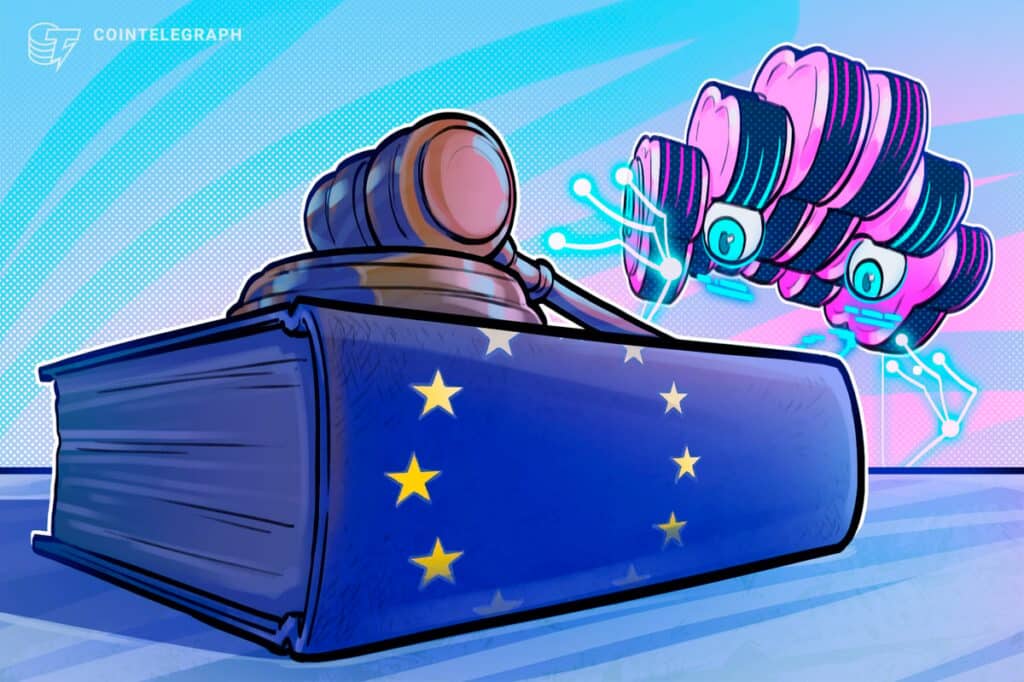EU Artificial Intelligence Law Explained.

Overview of EU Artificial Intelligence Law
The EU Artificial Intelligence Act is a regulatory framework aimed at regulating the use and development of AI technologies in the European Union.
Its main objective is to ensure that artificial intelligence (AI) systems are developed in a manner that respects EU values and fundamental rights and meets existing legal standards. This includes a focus on human-centered and trustworthy AI, emphasizing the need for AI systems to be secure, transparent and accountable, thereby protecting citizens' rights and liberties.
This Regulation underlines the EU's commitment to leading the ethical approach to AIA at international level. By establishing standards for high-risk AI systems, data governance and transparency, the act seeks to foster innovation by ensuring that AI technologies do not harm the public good.
It reflects the balance between encouraging technological advances and protecting societal and individual rights, making the EU a pioneer in defining the legal boundaries of AI implementation and impact.
Explanation of AI systems and their applications in the EU Artificial Intelligence Law
The EU Artificial Intelligence Act provides a general definition for AI systems and their applications, aiming to encompass a wide range of AI technologies and uses.
The explanation includes machine learning approaches, logic and knowledge-based approaches, and statistical approaches, as detailed in Annex I of the Act.
At the same time, the law has developed an ethical and legal framework to ensure that these AI systems are developed in accordance with the values and fundamental rights of the European Union. It emphasizes the need for AI systems to be transparent and accountable, and to protect individual rights, while maintaining a balance between encouraging technological innovation and protecting society's interests.
In essence, the EU Artificial Intelligence Act integrates Union values and fundamental rights, emphasizing that AI is compatible with democratic principles, the rule of law and environmental sustainability. This integration ensures that AI development respects human dignity, freedom, democracy, equality and the rule of law. Additionally, the Act addresses the potential impact of AI on democracy and the environment, highlighting the need for responsible AI that supports societal needs and environmental protection.
Alignment of EU Artificial Intelligence Law with GDPR and other data protection regulations
In terms of data management and protection, the EU Artificial Intelligence Act is consistent with existing EU data protection laws, including the General Data Protection Regulation (GDPR), to ensure the ethical handling of personal data in AI systems.
This includes data quality, security and privacy, ensuring that AI systems process data in a manner that respects users' privacy and data protection rights. The Act provides specific guidelines for biometric identification, emphasizing the importance of protecting personal privacy and security, particularly in the handling of sensitive biometric data.
Additionally, it classifies some AI systems as high risk, requiring strict compliance and controls to prevent harm and risks associated with their use. The law sets specific requirements for identifying and controlling high-risk AI systems. These standards focus on AI applications that have significant implications for the rights and safety of individuals, such as those used in critical infrastructure, employment and essential public services.
The regulation mandates strict compliance standards and certification requirements for these systems, ensuring that they meet the highest standards of security, transparency and accountability. This approach considers the potential risks and harms of AI with a view to preventing or minimizing its negative impact on individuals and society.
Certification and market surveillance procedures
The EU Artificial Intelligence Act introduces harmonized rules for AI systems in the EU's internal market, ensuring a uniform and coherent approach across member states.
This standard addresses the development and deployment of AI technologies, promoting compliance with EU-wide security and ethical standards. In addition, the law outlines certification and market surveillance processes to ensure AI systems are monitored before they enter the market and continue to comply with standards. According to the law, market surveillance authorities can obtain source codes of high-risk AI systems from:
Compliance with the requirements should be verified. Testing and information/documentation provided are not sufficient.
In terms of AI liability and accountability, the law clearly stipulates that developers and deployers of high-risk and general-purpose AI systems must establish robust AI governance frameworks and compliance systems. This framework ensures that any damages or legal violations arising from AI technologies are addressed, which focuses on the importance of responsible innovation and deployment of AI systems.
The law emphasizes the importance of accountability in the fast-growing field of AI, ensuring that developments are in line with ethical and legal norms. The law also outlines AI audit procedures and transparency measures, with a focus on maintaining high levels of accountability and openness in AI system operations. The law also details potential fines (up to 40 million euros or 7% of global sales) and measures against non-compliance, which reinforces the importance of accountability in the AI landscape.
Public sector and cross-border cooperation in AI management
The law promotes ethical AI in public services, calls for international cooperation and supports human control over automated decision-making, promotes cross-border cooperation for a competitive and values-aligned AI ecosystem.
The Act addresses the use of AI in the public sector and cross-border cooperation. It recognizes the significant role of AI in public services and emphasizes the importance of international cooperation in AI development. The law encourages member states to cooperate on AI initiatives, ensuring that AI technologies used in public services are ethical, transparent and effective.
The law emphasizes the importance of human control when automated decisions can have significant consequences for individuals, such as employment or access to public services. This approach is consistent with the initiative's overall goal of promoting trustworthy and human-centered AI systems.
In addition, the action highlights the importance of cross-border cooperation by supporting joint strategies to foster innovation and development in the AI sector. This approach is designed to create a dynamic AI innovation ecosystem that is globally competitive and aligned with EU values and standards.
The EU Artificial Intelligence Act promotes AI research and development.
The EU's Artificial Intelligence legislation provides strong support for AI innovation, particularly for small and medium-sized enterprises (SMEs) and startups.
He recognizes the importance of fostering an environment conducive to innovation in which these small entities can thrive. The Act outlines measures to reduce regulatory burdens on SMEs and ensure they have access to necessary resources, including compliance requirements. In doing so, it promotes entrepreneurial AI research and development so that these innovative companies can grow and contribute to the EU AI ecosystem.
In addition, the act promotes AI research and development across the board. It recognizes the critical role that research plays in advancing AI technologies and states that AI research must be conducted with ethical principles in mind.
By emphasizing responsible innovation, the act promotes the development of AI technologies that are compatible with EU values and fundamental rights. It addresses automated decision-making and execution, recognizing the need for transparent mechanisms and safeguards to prevent abuse and protect individual rights. Together, these provisions demonstrate the EU's commitment to promoting AI research, development and deployment while ensuring compliance with ethical and legal standards.














